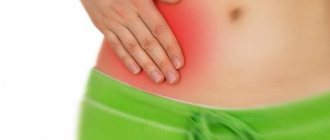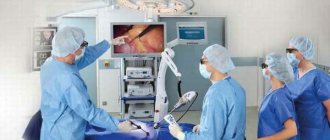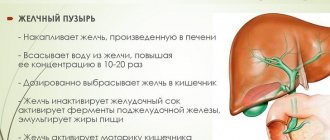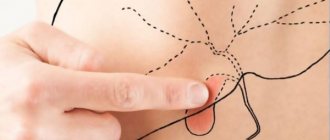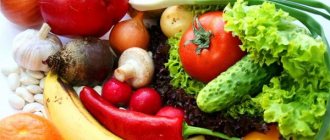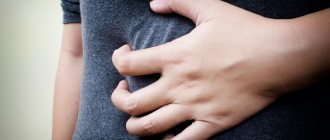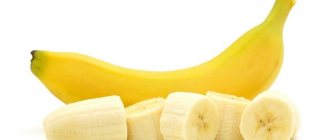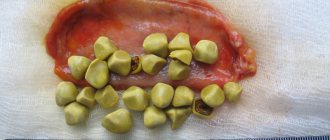Constipation after gallbladder removal is a symptom that worries many patients, even if all doctor's recommendations are followed. The fact is that this organ plays a significant role in the digestive processes, and after the operation the body needs to readjust and get used to the new regime. Immediately after cholecystectomy (surgical intervention during which the gallbladder is completely removed), doctors prescribe a gentle diet that will prevent intestinal disorders. Then you can return to your normal lifestyle, problems with stool will be normal for some time. To eliminate this symptom, you need a diet, mild laxatives or gentle herbal remedies.
Causes of constipation after cholecystectomy
Constipation after gallbladder removal worries many patients, both immediately after surgery and for several months after it. The main reason for this is the increased load on the body during the intervention, weakness of the intestinal walls, as well as changes in diet and physical activity.
Common reasons why constipation occurs include the following:
- weak intestinal peristalsis, due to which the food bolus does not move through its lumen;
- changes in diet that are necessary after surgery to remove the gallbladder;
- side effects after taking certain medications, including painkillers;
- changes in the acidity of gastric juice, which depends on the food eaten and other factors;
- lack of clean water and an abundance of solid food that is difficult to digest;
- sedentary lifestyle.
Normally, the gallbladder (GB) is involved in digestive processes. Bile is produced in the liver and enters the cavity of the bladder, where it accumulates until the right moment. When food enters the stomach, the body receives a signal that bile needs to enter the intestines. The gallbladder contracts and fluid moves through the bile ducts into the duodenum. There it breaks down fats and complex substances into simple ones, stimulates intestinal motility and the advancement of food coma.
A removed gallbladder is a phenomenon to which the body can adapt without consequences. Bile accumulates in small quantities in the ducts and also enters the intestines. Due to the disorganization of the digestive process in the first stages after surgery, problems with the intestines may occur. In addition, under the influence of anesthetic drugs and toxic substances in bile, the natural intestinal microflora is destroyed, which can cause constipation.
Problems with intestinal function occur in many patients after surgery, but over time all its functions are restored
How to treat intestinal atony - general recommendations
Specific therapy is prescribed individually and depends on the reasons that caused the stool disorder, as well as on the physical condition of the patient.
In general cases it is recommended:
| № | Helpful information |
| 1 | if intestinal atony is caused by anesthesia, you need to drink a lot (six to eight glasses a day) of water (excluding other liquids); it helps soften stool |
| 2 | Juice or tincture based on prunes helps a lot |
| 3 | It is recommended to include whole grain bread, buckwheat and oatmeal, bran, carrots and cabbage (Beijing or broccoli) in the diet. |
Drug treatment involves taking laxatives, which, although they do not eliminate the cause of constipation, provide a short-term relieving effect.
Such medicines can be produced in various forms: tablets, suppositories, solutions based on natural plants, and so on. Among synthetic laxatives, the most famous drug is Guttalax, which contains special fibers that form a mucous plug in the intestines. As it increases, the intestinal walls become irritated, and it painlessly cleanses itself.
However, the abuse of such drugs can lead to the fact that without additional stimulation the intestines will stop emptying, so their use should be under strict medical supervision.
Among other laxatives, the most common are:
- "Bisacodyl", whose effect appears six to eight hours after administration;
- “Bekunis” is a natural preparation based on cassia acufolia;
- "Fortrans", which has an osmotic effect (not recommended for patients with problems of the cardiovascular system;
- various probiotic preparations that stimulate the growth of beneficial bacteria and normalize intestinal microflora;
- "Bisacodyl" in the form of glycerin suppositories;
- "Microlax", whose effect occurs ten minutes after administration;
- Enema (cannot be performed more often than once every five days).
Read also: What causes a gallstone to appear in the duct?
Inna Lavrenko
auto RU
In addition, some physiotherapy procedures, for example, intestinal electrical stimulation, have a good effect.
Doctors' recommendations for treatment
Peristalsis disorders in the postoperative period must be treated. First of all, the patient is prescribed a special diet with a predominance of foods that are easily digested. You should also not spend the whole day lying down; you should do simple exercises and walk. If, after following all these recommendations, the symptom does not go away, you can use medications or herbal infusions. What to do if constipation occurs after cholecystectomy, you can check with your doctor.
Preventing constipation after surgery
Removal of the gallbladder is a mandatory intervention that is performed for a number of indications. It is prescribed to all patients with chronic enlargement of the bladder, cholelithiasis, acute cholecystitis and various anomalies of the structure of the organ. After the operation, the patient can gradually return to his usual lifestyle and diet, but at first he will have to follow a diet and take medications for bowel function.
The general principles of restoring the body after cholecystectomy boil down to the following rules:
- in the first few days, only liquid foods, pureed purees and juices are allowed;
- solid food is included a few days after the intervention in small slices;
- split meals are necessary, otherwise bile will constantly enter the intestines and injure its mucous membrane;
- physical activity must be strictly dosed: lifting weights is prohibited, but walking and light gymnastics are required.
In general, the rehabilitation period takes several months. During this time, the body fully adapts to the absence of one of the organs, and the outflow of bile is normalized. During this period, frequent constipation is possible, especially after introducing new solid foods or increasing portions of food consumed. Decreased physical activity also affects bowel function and causes constipation.
What to do?
There are several ways to avoid constipation after gallbladder removal. Each of them requires attention.
Medicines
Medication-based therapy consists of prescribing laxatives. They only have a short-term effect, but do not eliminate the cause. The forms of release of laxatives can be different: tablets and capsules, drops and suppositories. The most common are:
- BISACODYL . The effect is expected after 6-8 hours.
- FORTRANS . Has an osmotic effect. Use is acceptable if there are no problems with blood vessels and heart.
- BEKUNIS . Developed on the basis of plant components (active ingredient – cassia acufolia). Positively affects peristalsis and speeds up the emptying process.
- MICROLAX . The product will act on the body within 5-10 minutes.
- GUTTALAX . The good thing about the drug is that it is not addictive. It has a mild effect, which is achieved after 6-10 hours. Use no more than 20 drops diluted in boiled water at one time.
- Probiotics . Stimulates the growth of beneficial microflora in the intestines.
IMPORTANT. You should not take laxatives on a regular basis; this can cause significant harm to the body. Also, you should not buy medications on your own, without first consulting a doctor.
Folk remedies
Many people try to bypass pharmaceutical drugs and prefer traditional medicine. Many recipes and products can help relieve constipation after gallbladder removal. Let's look at the most popular:
- Beet juice. No more than half a liter is allowed per day, and the juice must be fresh. Part is drunk in the morning 40 minutes before eating. I drink the rest evenly throughout the day.
- Potato juice . Drink in the morning, an hour before meals, 150 milliliters is enough.
- Carrot or pumpkin juice . During the day you can drink no more than 250 milliliters of juice.
- Decoction of senna herb. In a thermos, pour 50 grams of dry herbs with a liter of boiling water. Let it brew for about 2 hours. Drink 2 tablespoons in the morning, lunch and evening.
- A good natural laxative is prunes . Take a few pieces in the morning on an empty stomach (it is recommended to soak it first).
- Sunflower oil (linseed oil is also possible). Drink a tablespoon in the morning on an empty stomach.
- Celandine.
To prepare a laxative, you will need a glass of celandine herb (should be crushed first), 250 grams of sugar, 3 liters of whey. Sugar and grass are mixed and wrapped in gauze, which is placed in the whey. All this is infused in the dark for 7 days. After cooking, keep in the refrigerator. Strain and drink half a glass before eating 2 times a day. The course is 14 days, then it will require a short break (a couple of days), and you can finish the rest of the mixture.
ON A NOTE . Constipation most often occurs during the rehabilitation period after surgery - the first six months. Over the course of a year, the internal organs adapt to working without the gallbladder, and the problem of constipation goes away on its own.
Rehabilitation regimen after abdominal cholecystectomy
Abdominal surgery to remove the gallbladder is rarely performed. Basically, the surgeon chooses this method if the organ has an atypical location or there is a risk of rupture of its walls. After such an intervention, the patient will have to spend at least a week, during which time he will be under constant medical supervision.
Proper nutrition as recommended by your doctor is the main rule for treating constipation.
The main reason for constipation in the postoperative period is adhesions in the abdominal cavity. They are formed during wound healing and can affect bowel function. To relieve this symptom, doctors have several recommendations:
- spend more time moving to prevent the formation of adhesions;
- consume fermented milk products, cereals and whole grain bread - they stimulate intestinal motility;
- Mild laxatives are taken only as prescribed by a doctor.
Abdominal surgery represents enormous stress for the body. All internal organs weaken after the intervention, and it is important to facilitate the recovery period with diet. It is also forbidden to perform serious physical activity, lift weights and strain the abdominal muscles.
Exercises
After surgery, many exercises are prohibited, but there are some useful tips that will improve your condition after gallbladder removal.
You can only be active 1-2 months after surgery, but simple exercise will help relieve constipation.
It is recommended to walk outside more and breathe air so that the body receives enough oxygen.
In turn, metabolic processes will improve, and bile will not stagnate. Movement normalizes digestive function.
Swimming helps combat constipation after surgery. This sport is beneficial for all muscles, organs and the body as a whole.
This is the only sport that is responsible for everything. Not very intense exercise in the morning will be an excellent helper for the body, and constipation will go away or not appear at all.
Recovery after laparoscopy
Laparoscopy is a minimally invasive technique that allows access to the abdominal organs with minimal damage to healthy tissue. The gallbladder can be removed through small holes in the abdominal wall. The recovery period in hospital after such an intervention lasts several days, but you will have to follow a diet for several months, as with a classic cholecystectomy.
Despite the fact that the method is minimally invasive, it also affects the functioning of the intestines. The main cause of constipation is the unregulated flow of bile into the duodenum, weakening of the intestinal muscle wall and an imbalance of natural microflora. Doctors' recommendations remain the same: you need to eat on a schedule, move a lot and consume a large amount of fermented milk products.
Recommendations after recovery from anesthesia
Regardless of which cholecystectomy technique the surgeon chooses, the operation is performed under anesthesia. Anesthesia drugs are toxic and affect all organs and systems. Digestive disorders after the patient has been put under anesthesia can be caused by two reasons:
- complete muscle relaxation, as a result of which intestinal motility slows down;
- intoxication of internal organs.
Recovery from anesthesia does not take much time. Within a few days, the body removes toxic products from drug processing, and all processes resume. To reduce the load on the gastrointestinal tract on the first day after surgery, a fasting diet is necessary. Liquid and then solid food are added gradually.
Treatment of constipation
Proper nutrition may not work immediately.
What to do if constipation causes significant discomfort, heaviness, bloating, colic in the intestines?
Let's consider methods and remedies for constipation that are acceptable after surgery:
- Enema . This is the simplest and most accessible method for quick bowel movements. For an enema, you can simply use warmly boiled water, a weak infusion of chamomile, or a weak solution of potassium permanganate.
- Laxative medications . After cholecystectomy, it is recommended to use a mild laxative. These drugs include: Duphalac, Lactulose, Exportal, Lactitol, Importal N, Evacue (suppositories), Ferroplex (suppositories).
Treatment for constipation should be prescribed by a doctor. Self-administration of drugs is permissible only in extreme cases.
Ferroplex
Exportal
Evacue
Duphalac
Lactulose
Both enemas and laxative medications are addictive. They cannot be used for more than 5-7 days.
Physiotherapy
The doctor can also prescribe physiotherapeutic procedures to quickly and safely restore the functioning of the gastrointestinal tract.
The most effective are considered:
- inductothermy;
- electrical stimulation;
- abdominal massage.
Sometimes after surgery, adhesions form on the intestines. Physiotherapy (electrophoresis) is also used to resolve them.
Traditional methods for constipation
- Boil one medium beet, grate, season with a small amount of vegetable oil and eat at dinner.
- Take 1 tsp. dry senna herb, fennel and dill seeds, pour 300 ml of boiling water, leave for a couple of hours, strain, divide into 3 doses. Drink 100 ml before meals.
- For constipation, drink 1 tsp every morning on an empty stomach. linseed oil.
- Many who have undergone surgery are interested in whether prunes can be included in their diet. Allowed to use 2-3 pieces. prunes a day, it has a mild laxative effect and is beneficial for the body.
Drug treatment
Drug treatment for constipation is necessary if the problem does not disappear even after following the diet and all other recommendations. After removal of the gallbladder, mild laxatives or enemas are allowed. These drugs do not affect the cause of the problem, but can clear the intestines of feces.
Excessive physical activity is contraindicated, but walking is good for health and bowel function
Drugs that can be used to treat constipation in the postoperative period:
- Bisacodyl is a slow-acting drug, the main effect of taking it appears after 6 hours;
- Guttalax is a synthetic drug for stimulating intestinal function;
- Bekunis is a herbal remedy based on cassia acufolia;
- Fortrans is an effective medicine that is recommended to be taken only in adulthood and in the absence of pathologies of the heart and blood vessels;
- Mikolax is one of the fastest-acting remedies; the effect is achieved within 5–15 minutes;
- various probiotics to normalize the composition of the natural intestinal microflora;
- enemas are an emergency method that is not recommended more than once a week;
- suppositories based on glycerin and the active ingredient bisacodyl.
You need to understand that medications have a short-term effect. Immediately after taking the medicine, the stool returns to normal and the intestines work in the correct mode. It is not recommended to abuse laxatives, otherwise there is a risk of exacerbating the symptom and causing weakening of the intestinal walls. Enemas disrupt the composition of the normal intestinal microflora, so they also cannot be done often.
General principles of treatment
During the rehabilitation period after removal of the gallbladder, experts advise adhering to basic rules aimed at coordinating complications that arise. Therapeutic tactics are selected individually, depending on the reasons that provoked constipation, but general recommendations consist of the following measures:
- for constipation caused by anesthesia, you need to drink at least 6-8 glasses of clean, boiled water per day, not counting other liquids. Drinking plenty of fluids softens stool;
- drink tinctures or juices from prunes;
- introduce buckwheat, oatmeal, bran, whole grain bread, carrots and pumpkin into the diet;
- 3-6 months after cholecystectomy, increase the level of physical activity - swimming, gymnastics, race walking, because Daily exercise helps move bile through the ducts.
Physiotherapy (electrophoresis, inductothermy, electropulse therapy) and massage are also prescribed. To relieve constipation, patients can perform self-massage by stroking the peri-umbilical area clockwise, followed by bringing the right thigh towards the abdomen.
It is worth noting that slower motility in the stomach leads to fluctuations in acidity, which causes atony. To regulate a low amount of acid, it is necessary to include sour fruits in the menu, and to normalize a high amount, lactic acid products containing bifidobacteria.
Traditional methods
Before being treated with traditional methods, you should find out from your doctor which of them are the safest and most effective, whether they have contraindications and whether there is a likelihood of side effects. These are mainly products that affect peristalsis and normalize intestinal function:
- freshly squeezed beet juice in an amount of 500 ml is drunk in small portions throughout the day;
- potato juice also affects intestinal function; it must be taken on an empty stomach before each meal;
- prunes and other dried fruits;
- vegetable oils, a teaspoon on an empty stomach before meals;
- carrot or pumpkin juice;
- Senna herb decoction.
After surgery to remove the gallbladder, you should not experiment with unknown folk methods. More attention should be paid to proper nutrition and preparing healthy food.
It is not recommended to abuse laxatives
Features and consequences of gallbladder removal
The formation of gallstones is associated with many factors:
- Metabolism is disrupted.
- The diet lacks plant foods containing fiber.
- Excessive consumption of fatty foods.
All these factors interfere with the outflow of bile, block the bile ducts and cause an inflammatory process.
Often all this is accompanied by infection, resulting in the formation of holes in the walls of the gallbladder. This phenomenon is extremely critical and requires surgical intervention by a surgeon. After the operation, enzymes for digesting foods are produced in small quantities. Therefore, stagnation of bile is formed, destroying the microflora. Bile is constantly sent to the stomach, which negatively affects digestion in general. Fermentation begins in the stomach , hence bloating, diarrhea, and constipation.
Diet to help avoid constipation
People who have had their gallbladder removed are advised to completely change their diet for several months. In the first few days, solid food is contraindicated; the patient can only consume liquids, vegetable decoctions, tea and pureed purees. Then gradually include all products except those that may negatively affect the functioning of the digestive tract. Liquid soups and cereals, vegetables and fruits will be useful.
For several months after the intervention, you should avoid the following foods:
- fatty, fried foods, smoked foods;
- fresh bread and pastries;
- carbonated drinks and alcohol;
- cold foods (ice cream).
Constipation after gallbladder removal is not uncommon. Patients complain of intestinal disorders even if they follow all the doctor’s recommendations. During the recovery period, it is necessary to follow the doctor’s instructions, adhere to a diet and normalize physical activity. In extreme cases, you can use medications: laxative tablets, suppositories or enemas. In most cases, all symptoms disappear within a few months, and the patient can return to their normal lifestyle.
How to eat right to avoid constipation
Removal of the gallbladder leads to a double load on the liver; dietary nutrition plays an important role in restoring the functioning of the gastrointestinal tract. After surgery, a strict diet is prescribed - table No. 0. Dietary food accelerates the process of rehabilitation of the digestive organs in the first days after surgery and is easily absorbed by the body.
Nutrition in the postoperative period
A zero diet is prescribed in the first three days after surgery on the digestive tract and excludes the consumption of solid foods. Strict adherence to therapeutic nutrition during the postoperative period will help to quickly cope with constipation.
- The first day - exclude the intake of any food and liquid. To eliminate dry mouth, you can rinse your mouth or moisten it with a damp cloth;
- Second day - you are allowed to drink water, rosehip decoction and dried fruit compote. You can drink a glass of low-fat kefir.
- Third day - vegetable soups, mashed potatoes with water and low-fat cottage cheese are introduced.
From the fourth day, the patient is transferred to dietary table No. 5 - the diet excludes cold foods and coarse fiber. Gentle nutrition avoids the accumulation of gases in the intestines and stimulates the production of digestive juices necessary for the complete digestion of food.
Freshly squeezed juices and fatty foods are excluded. The diet includes slimy porridges cooked in water (oatmeal, semolina) and boiled meat (chicken breast, veal), and boiled fish. Boiled or steamed food reduces the load on the stomach and prevents fermentation in the intestines.
Drinking fluids will help relieve constipation. It is advisable to accustom yourself to drinking plain water, at least 2 liters per day. Very often we neglect this.
Nutrition after discharge from hospital
Compliance with a gentle diet is indicated for the first six months after surgery. Meals should be eaten in fractions and by the hour - this will help develop a food reflex. Receiving food into the stomach at a certain time will ensure the production of bile for complete digestion and avoid constipation.
What you can include in your diet:
- Fermented milk products;
- lean varieties of fish and meat;
- whole grain dried bread;
- fruit juices diluted with water;
- vegetable stew;
- baked apples;
- compotes (from fresh berries or dried fruits);
- lightly brewed black tea (without sugar or with a sweetener);
- marmalade, marshmallows, marshmallows;
- mashed or semi-viscous porridges cooked in water (or diluted milk);
- vegetable soups (cooked not in meat broth);
- milk soups;
- protein omelettes.
Eating fried foods is prohibited, salt should be moderately limited.
Dietary restrictions:
- Legumes;
- coffee;
- marinades;
- meat and fish broths;
- baked goods and confectionery products;
- spices;
- smoked meat and fish products;
- canned food;
- salted cheeses;
- mushrooms, onions, garlic, radishes;
- white cabbage without heat treatment;
- nuts;
- carbonated drinks and alcohol;
- unrefined vegetable oil.
The duration of the diet depends on the individual characteristics of the body. Then you can slowly expand your diet.
If you are concerned about constipation, we try to exclude rice and instant oatmeal (Extra) from your diet. We widely introduce fermented milk products into the diet. Fresh kefir, fermented baked milk, sour cream are useful. The main thing to remember is that these products must be really fresh - up to a three-day shelf life. Otherwise, they will have a fixing effect.
We also gradually include more fiber in the diet - vegetables, fruits. Salads are very useful for constipation, and their effectiveness sometimes exceeds that of taking medications.
For more information about nutrition after gallbladder removal at different stages of surgery, read the article Diet and nutrition after gallbladder removal
You can find a large number of recipes about nutrition after removal of the gallbladder in the book that I wrote together with my doctor. There are also recipes for dishes so that the diet is varied in order to eliminate constipation and other unpleasant phenomena. You can read about the book here
